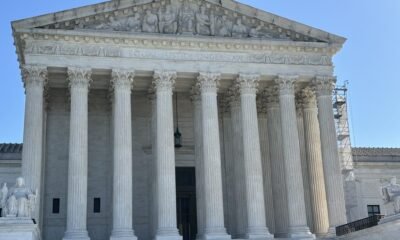Benjamin Netanyahu
Palestinian Resilience Persists as Trump’s Plan Aims to Reshape Gaza

Recent comments by President Donald Trump suggesting a U.S. takeover of Gaza and the displacement of its population have raised significant concerns among Palestinians and geopolitical analysts alike. His remarks, which imply transforming the region into “the Riviera of the Middle East,” have sparked fears of potential ethnic cleansing, considering Gaza is home to approximately 2.2 million Palestinians.
Following Trump’s statements, Riyad Mansour, the Palestinian envoy to the United Nations, emphasized the need to respect Palestinian sovereignty and attachment to their homeland. He stated, “Our homeland is our homeland,” underscoring the issue’s emotional and historical significance for Palestinians.
Displacement is not a new phenomenon for Palestinians. The legacy of forced migration began in 1948 when over 700,000 Palestinians fled or were expelled during the establishment of the Israeli state. Many of these individuals and their descendants have spent decades living as refugees, primarily within Gaza.
The United Nations Relief and Works Agency (UNRWA) was established to assist these refugees, setting up camps for those displaced from more than 190 towns and villages. Despite international resolutions like U.N. General Assembly Resolution 194, which called for the right of return for refugees, successive Israeli governments have consistently resisted repatriation, citing security concerns.
Efforts to resettle Palestinian refugees have been met with staunch opposition. In 1969, Israeli plans to transfer thousands of Palestinians from Gaza to Paraguay were halted due to direct opposition from the Palestinian community. Far-right Israeli settlers have also attempted to establish a dominant presence in Gaza, aiming to clear the land for Jewish settlements.
The Oslo peace negotiations of the 1990s reaffirmed the central role of Palestinians in Gaza within a two-state solution. However, the ongoing conflict and recent escalations have shifted the narrative toward potential resettlement discussions once more. In the aftermath of the October 7, 2023, attacks and subsequent military actions against Gaza, concerns arose that the U.S. administration’s support could inadvertently endorse ethnic cleansing policies.
As calls to encourage Palestinian emigration resurfaced, many in Gaza are adamant about resisting displacement. The sentiment is poignantly echoed by various individuals who assert their commitment to staying, regardless of financial offers or external pressures. “No amount of money in the world can replace your homeland,” stated one resident, reflecting the resilience embedded in Palestinian identity.
The rebuilding process for Gaza, estimated to cost around $50 billion over a decade, highlights the urgent need for international assistance tailored to restoration rather than resettlement. As the Palestinian community continues to assert its right to remain, it is clear that historical patterns of resistance to displacement remain strong.
This article was originally published by The Conversation and is republished here under a Creative Commons license.


















